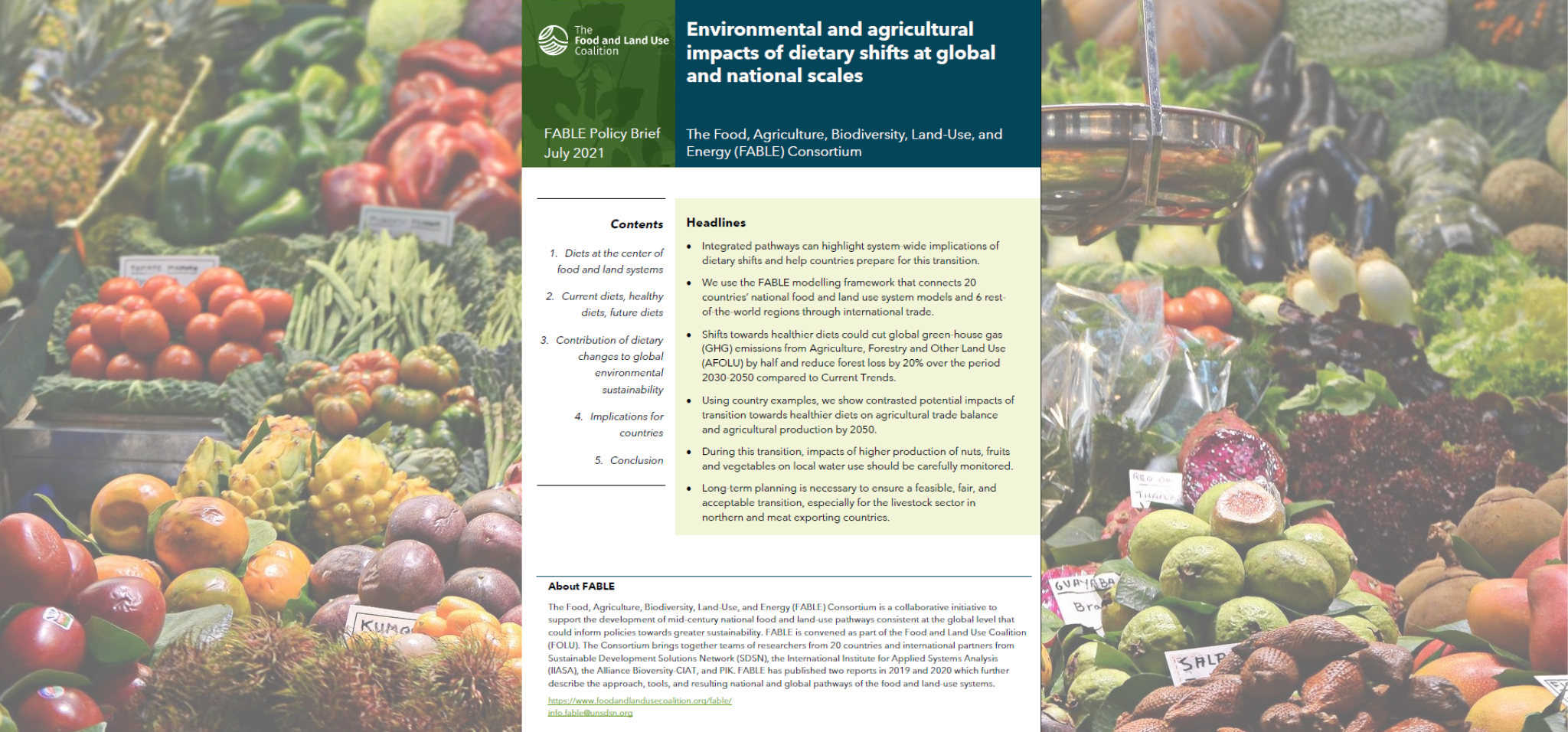
A transition towards healthier diets could deeply transform our food systems and help achieve the Paris Climate Agreement. This transition, however, needs to be well prepared as diet shifts can have major effects for land use, food value chains, trade patterns, and livelihoods of rural and farming communities. Integrated pathways of the food and land-use systems can highlight some of these system-wide implications.
To assess the system-wide implications resulting from dietary shifts on GHG emissions from the AFOLU sector, deforestation levels, agricultural trade balance, cropland structure, and agricultural land abandonment, FABLE developed pathways by 2050 for 20 countries and six rest-of-the-world regions.
The brief disentangles the impact of healthy diets from all the combined impacts of changes assumed in the Sustainable Pathway, FABLE compares the results across three pathways: Current Trends, Sustainable, and Healthy Diets.
By anticipating these changes through long-term integrated pathways, countries can:
- support farmers and agri-food industries in the adjustment of the supply chains according to the changes in the food demand resulting from healthier diets;
- implement policies to ensure accessibility and affordability of healthier diets; and
- design programs to realize the carbon sink and biodiversity potential from changes in agricultural lands.